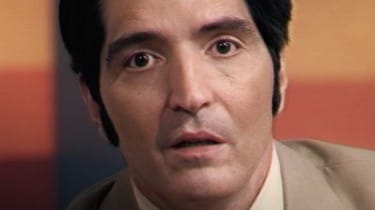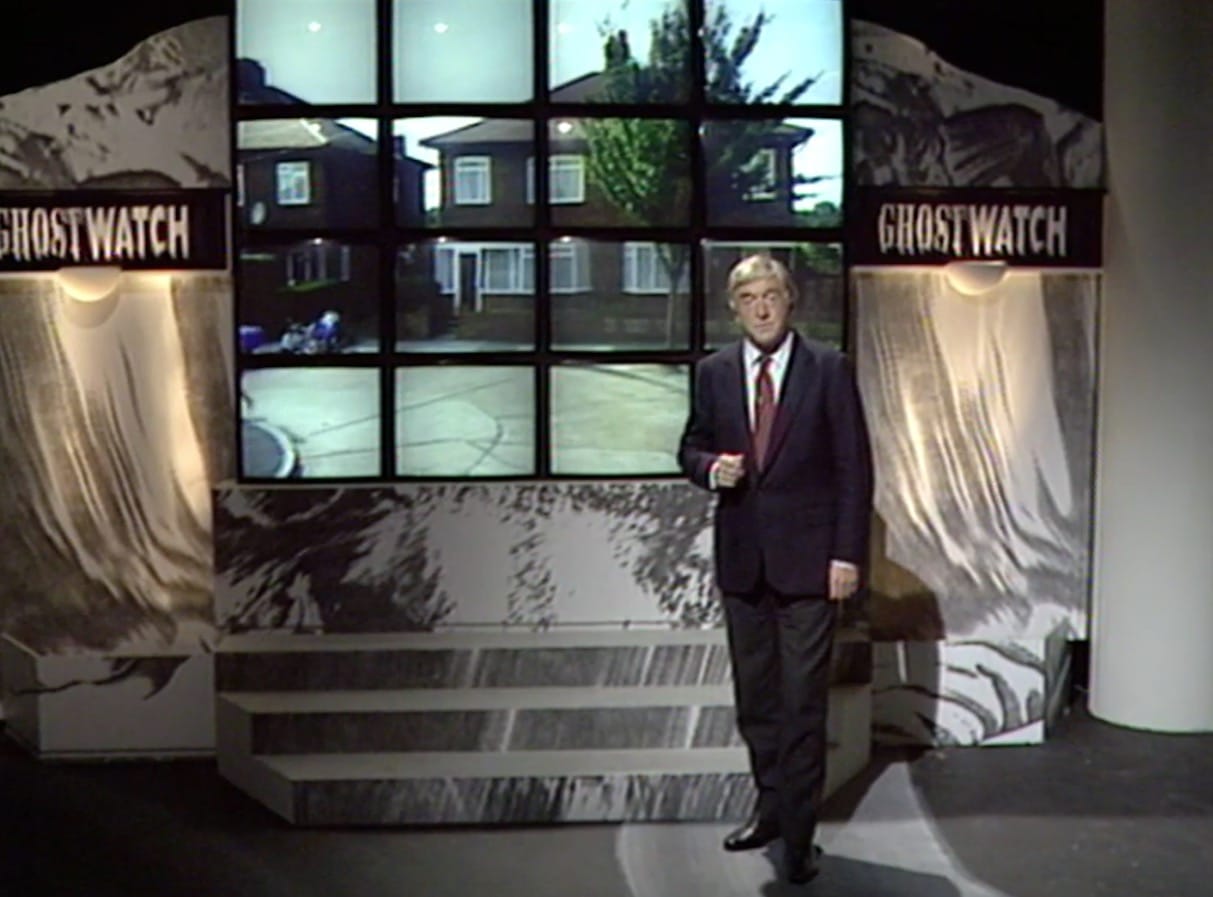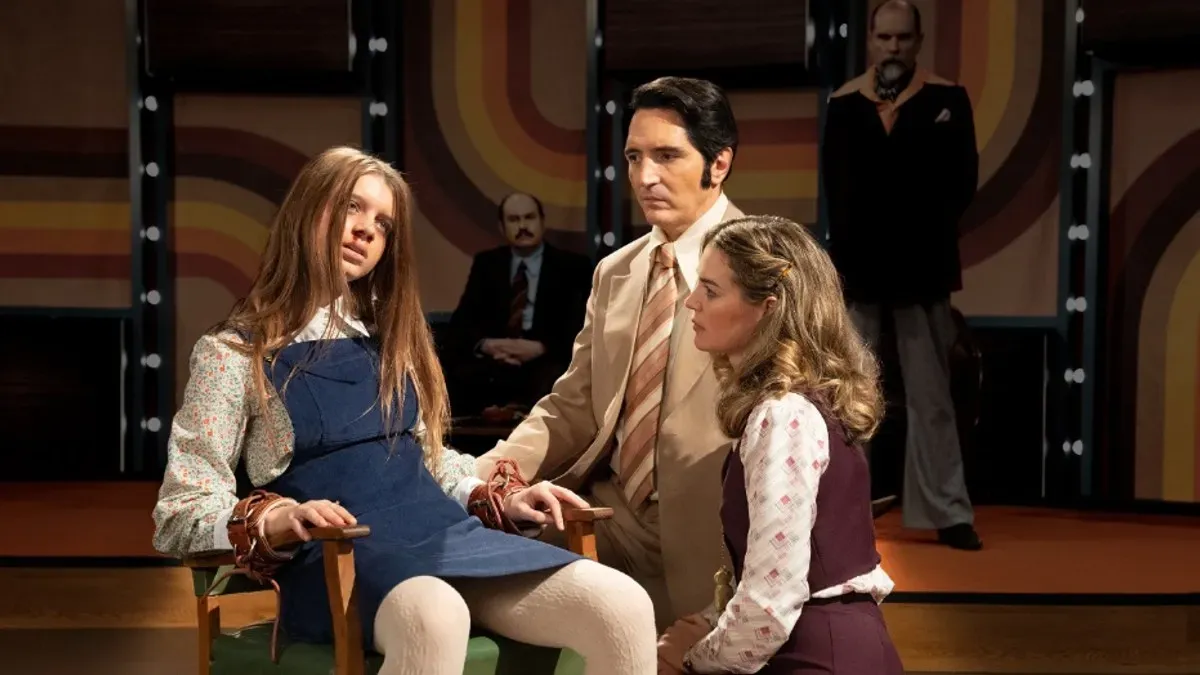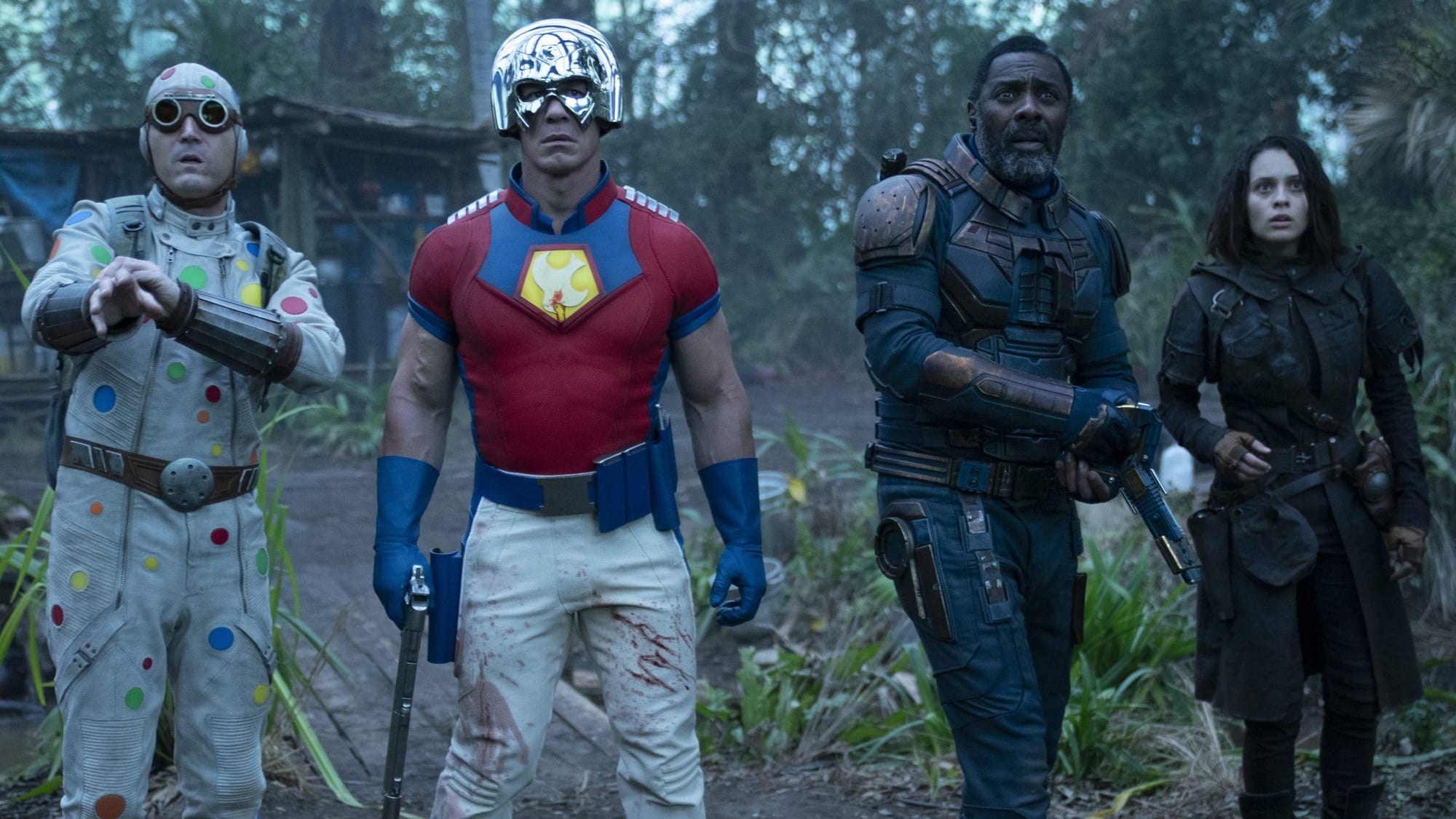Blurbing For The Weekend 4/26/24

Do you remember when I said I wouldn’t spoil Ghostwatch? I lied. Well, sort of. But it’s hard to explain why I was disappointed by Late Night With The Devil without comparing this new movie about a TV episode gone supernaturally awry to the mock-live 1992 BBC Halloween special so disturbing that it was never aired again. Especially when I watched both on Shudder.
Not that the two projects are carbon copies. Ghostwatch initially presents itself as a relatively generic bit of BBC late-night entertainment, right down to the standard network call-in number and Sir Michael Parkinson hosting as himself. Late Night With The Devil opens with a faux-retrospective look at the life of fictional Johnny Carson competitor Jack Delroy, played by David Dastmalchian, desperate to raise his ratings with controversial content after the death of his wife. Ghostwatch never steps outside what was filmed for the show. Along with the A&E Biography-style intro, Late Night With The Devil hops between the master recording of what allegedly aired that night and “behind-the-scenes” documentary footage, allowing us to see what went on between the crew and guests during advertising breaks. This is available even when the conversations captured between characters are private or grossly unethical, and when you think this hypothetical documentary crew might be running for their lives.

Climactic supernatural chaos well above the live TV norm is what both shows have in common. But (spoiler city) where Ghostwatch sticks to what the viewer would logically see in this scenario, Last Night With The Devil disappointingly dispatches with both the “late night TV episode” and “documentary about said episode” conceits. The latter cheat is typical in found footage movies. No one would actually release a documentary that ends with murderous jump scares and little-to-no creator commentary like the Paranormal Activity and Blair Witch series have implied. But Devil goes a step further, implying we’re seeing the hallucinations of the lead character, featuring imagery that’s familiar only due to the pre-footage introduction. Though who would make the opening exposition so important only to provide zero exposition at the end? And give no details about what happened to Jack Delroy after the episode aired? It would be one thing if the documentary we’re watching itself seemed to be going haywire, but - with the master footage cutting right to the proud credits - Devil‘s end is less ambiguous than merely sloppy.
Despite my clear disappointment with Late Night With The Devil and preference for Ghostwatch, I wouldn’t assume everyone will have the same reaction. While the craftsmanship is clearly superior in the earlier work, some will be more than willing to sacrifice narrative clarity for the campy period-film whimsy (oh yes, this host has an oafish sidekick) and a lead performance like David Dastmalchian’s. Even if you don’t recognize his name, I probably only have to say “the accomplice of the Joker who freaks out when Aaron Eckhart points a gun at him in The Dark Knight” (his film debut!) or “the goofy Russian in Ant-Man” for you to respond “oh, that guy!” Other options include “Whistling Marauder in Bird Box,” “the weirdo who accidentally kills Michael Rooker in The Belko Experiment” and “the wild-eyed suspect in Prisoners who isn’t Paul Dano.” He also got the Brad Dourif role in the Dune remake. Ant-Man aside, I think we’ve established he’s got a niche.

While I’m not sure I’d cast a Brad Dourif type as the host of a Tonight Show competitor, Dastmalchian is terrific as a man whose true perspective would be hard to deduce even if he wasn’t dishing out ‘70s late-night smarm. While I regret the film’s lack of internal logic, I love the lack of clarity as to how much Jack Delroy is the manipulator or the manipulated. It’s his job to be fake, and trick viewers into indulging rubbernecker impulses while believing he’s a figure of virtue. Delroy is glib about that process, and desperate to prove himself, but sincerely offended by the disrespect shown to his paranormalist guests by a magician-turned-skeptic. There’s something genuine under Delroy’s armor, and it’s fun to watch an actor who’s usually the least together person on screen try to be the voice of calm and credulity. Just as Brad Dourif was able to pull off a character as rich as the young preacher in John Huston’s Wise Blood - as well as several dozen cartoon wackos after - Dastmalchian seems capable of a more complicated intensity than serial killer roles require. Though Devil doesn’t live up to the hype, Dastmalchian might redeem it anyway. FOUR BAGS OF POPCORN.
Discussing Devil with friends inspired me to rewatch James Gunn’s The Suicide Squad, where Dastmalchian plays The Polka-Dot Man, only arguably the goofiest of the B & C level villains united by Viola Davis’ ruthless Amanda Waller for the DC Universe’s prison superwork-release program (there is TDK, after all). Though technically a sequel to David Ayer’s article-free Suicide Squad, all one needs to know from that movie is that Waller implants bombs in imprisoned villains’ heads and has them take on impossible missions in exchange for sentence reduction. That, and Margot Robbie’s Harley Quinn was the Joker’s girlfriend. Aside from a passing reference to a Kryptonite bullet, everyone’s playing archetypes - mercenary, criminal genius, loony ex-moll, Shark-man - rather than assuming you’re invested in comic book lore.

Gunn proved his knack for selling obscure comic book characters across three Guardians Of The Galaxy movies, and The Suicide Squad features similar surreal delights and smirking oddballs as those movies - though with the obscene imagination amped up for an R rating. Squad is also a heightening of Gunn’s mostly forgotten 2010 film Super, where Rainn Wilson’s doofus lead, his wife cucking him with her drug dealer, puts on a mask and starts whacking criminals with a wrench as vengeance. It’s a similar screwball, psychotic logic as Harley Quinn’s desire to avoid familiar patterns of emotional codependency, despite the undeniable studliness of a Central American despot who fancies her.
We never do find out what Dastmalchian’s Polka-Dot Man did to wind up in prison (ok, aside from matricide). All we really know is that he has to shoot polka-dots out of his body or he’ll die and that he really, really, really resents what his scientist mother did to give him and his siblings super-powers. It even seems possible he didn’t even try to commit a crime (well, aside from matricide), but instead royally fucked up trying to stop one. It’s tragic as hell if you think about it, but part of the subversive fun of the film is the intimation that super-stories aren’t entitled to our concern & affection, and these cartoons should be treated as disposable unless we love them enough to demand survival. I’m not mad that Warner Bros has handed Gunn the entire DC Comics Universe, and I won’t be mad if Polka-Dot Man is still in it. POPCORN CLASSIC.